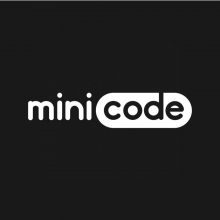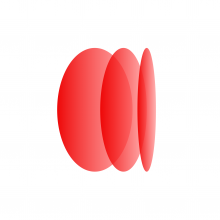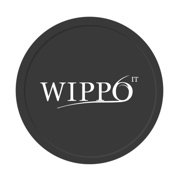
There are 9 Companies in Moldova
that provide Flutter Development Services!
Moldova is a small country located in the Eastern European region, with a population estimated at around 2,9 million people. Now that we have made this clear, it’s time to talk about its IT industry and tech development the country will reach by the end of 2025. According to Statista, the IT Outsourcing market is expected to reach $37.8 million in 2025 with a CAGR 2025-2030 of 9.35%.
Discover Top IT Companies in Moldova specialized in Flutter and other related services. Find the best IT service providers for your projects.
Flutter is an open-source UI (User Interface) framework developed by Google for building natively compiled applications for mobile, web, and desktop from a single codebase.
It was officially introduced by Google in May 2017, although its development began earlier as an internal project named "Sky." It aimed to address challenges in cross-platform mobile app development by providing a consistent and high-performance framework for building native-like apps on iOS, Android, and other platforms. Flutter has since gained significant traction and popularity in the developer community.
Handpicked companies • No obligation to hire • 100% risk-free
Featured Companies in Moldova
This month, the following Flutter Development companies managed to provide an outstanding service and support. It's worth taking a look.
Studio Webmaster builds sleek websites and apps, plus cybersecurity that protects your data 24/7. Launch fast, stay safe, and grow today!—with us now!
Managed IT Solutions- your partner in technology -driven success
Quant Apps delivers innovative, user-focused mobile and web solutions to transform ideas into powerful digital experiences.
Explore Top Flutter Development Companies in Moldova
Minicode is a software company from Moldova with offices in the US. We design, build, and scale Custom software, Web & Mobile Apps, SaaS, IoT, and AI.
Elermond Studio - a development company; we are the architects of captivating digital experiences! With a laser focus on game development.
Agile (Mobile & Web) Software Development
We provide 200+ IT experts, including developers, designers, managers, and analysts, from Eastern Europe for global projects.
Wippo IT develops diverse custom digital solutions for small, medium-sized and enterprise-grade businesses that streamline, automate and optimize bus...
We’re a team of designers and developers who create beautiful BRANDS and design stunning WEBSITES.
Filter Flutter Development Companies in Moldova by Cities
Find the right tech company near you or from a specific city. Some of the best companies might be located in smaller cities.
Find more Flutter Development companies around the world
TechBehemoths is the world's most advanced and user-friendly platform to match IT Companies with real clients without hustle.
The IT Industry in Moldova: General Overview
Moldova is a small country located in the Eastern European region, with a population estimated at around 2,9 million people. Now that we have made this clear, it’s time to talk about its IT industry and tech development the country has reached by 2025.
According to the latest statistics, which date from 2023, the country has an income worth $1.154 billion from IT services and products. According to Statista, the IT Outsourcing market is expected to reach $37.8 million in 2025 with a CAGR 2025-2030 of 9.35%. How is this possible, you would ask. There are countries with way more developed IT industry and a larger population that register fewer numbers.
It’s simple. The number of IT companies located in Moldova has increased as well, and now, in 2025, such a small country has 2300 IT companies that mostly export their services and digital products in central and western Europe. The relatively cheap workforce, which is at the same time average qualified with linguistic skills, is probably the most attractive and in demand in Europe. Speaking of languages, almost every youngster aged between 18-35 knows at least two languages: Romanian and Russian. In addition, English is extremely popular and well assimilated by the local population.
But of course, there are more reasons why you should work with a Moldovan IT company.
Why You Should Work With a Moldovan IT Company
The positive evolution of the Moldovan IT industry has also increased the visibility of local companies that create and develop digital products both for internal and external markets. Initially focused on outsourcing, Moldova has grown its startup base with multiple accelerator programs and incubators that are focused on digital.
Now, you can meet Moldovan IT companies and digital agencies all over the world, especially in Western Europe, where some of them have reached the top niche.
The transformation from agriculture to digital in Moldova is visible, and many young professionals are opting for a career in the digital network. In this way, companies here have plentiful resources for creating and developing more and more IT companies.
Another reason for working with Moldovan IT companies is the cheap prices for the quality of their digital services. The monthly average wage of a web developer in Moldova is estimated to be €650 - €3K/mo.
What to Be Aware of When Working With a Moldovan IT Company
Professional services, low prices, and a large talent pool - all these combined make Moldova probably one of the best places to work with an IT company or a web agency in Europe. But, of course, there is more to it.
Moldova’s IT industry is still in a development phase that requires resources and attention. While the European IT market is overwhelmed with companies, it seems there is not much room left after all, and many companies are not so well-known or don’t have enough visibility.
In addition to that, a potential client should also pay attention to a company’s portfolio, experience, number of employees, and hourly rate - just like in any other country, some companies perform outstanding and charge respectively, but as well as companies that have just started their road and are probably inappropriate for big projects.
How Reliable Are Moldovan IT Companies
In terms of reliability, Moldovan IT companies are generally fair, or at least reviews from real clients say so. However, project delivery delays are expected. In contrast with professional services, it should not be a problem, though, since the extra time a client has to wait is worth it. Not to mention that in Western Europe and the US, web agencies and software companies also take their time in most cases to deliver a digital service or product.
How Does the Moldovan IT Industry Relate to the Neighboring Countries?
With Ukraine and Romania as neighboring countries, Moldova is already out of the competition in terms of IT infrastructure. However, the field of Information and Communication doesn’t know physical boundaries, and local software companies don’t seem to have problems with finding new partnerships and contracts.
The government's support policies are also a helping hand for the industry’s development - there are two IT parks already, which charge 0% VAT for employees and only 7% for companies. This stimulates companies and professionals to choose a career in IT and develop the industry.
What is Flutter and what are its benefits for your projects?
Flutter is an open-source UI (User Interface) framework developed by Google for building natively compiled applications for mobile, web, and desktop from a single codebase.
It was officially introduced by Google in May 2017, although its development began earlier as an internal project named "Sky." It aimed to address challenges in cross-platform mobile app development by providing a consistent and high-performance framework for building native-like apps on iOS, Android, and other platforms. Flutter has since gained significant traction and popularity in the developer community.
Flutter has seen rapid adoption, thanks to its key advantages, such as a single codebase for multiple platforms, a rich set of pre-designed widgets, and fast development cycles. It has found use in various industries, including mobile app development, web development, desktop applications, and even embedded systems. Some notable apps developed with Flutter include Alibaba, Google Ads, eBay Motors, and more. Its usage continues to grow, and it has a strong developer community and ecosystem.
Flutter is versatile and suitable for a wide range of projects:
- Mobile Apps: Flutter is commonly used for developing mobile applications, including consumer apps, business apps, e-commerce apps, social media platforms, and more. It provides a native-like experience on both Android and iOS.
- Web Apps: Flutter can be used to build web applications, allowing developers to target browsers as well. This is still in the experimental phase (as of my knowledge cutoff date), but it shows promise for building responsive web interfaces.
- Desktop Applications: Flutter supports desktop platforms like Windows, macOS, and Linux. Developers can create desktop applications for various purposes, including productivity tools and utilities.
- Embedded Systems: Flutter can be used to create user interfaces for embedded systems and IoT (Internet of Things) devices, providing a consistent look and feel across different hardware.
- Custom UI Components: Flutter is often used to build custom UI components and widgets that can be integrated into larger applications, providing a cohesive design language.
Hourly rates for Flutter developers can vary significantly based on factors like location, experience, project complexity, and demand. On average, Flutter developers may charge anywhere from $25 to $150 or more per hour. Rates tend to be higher in regions with a higher cost of living, such as North America and Western Europe, and lower in regions with lower living costs, such as Asia and Eastern Europe.
It's important to note that more experienced and specialized Flutter developers with a strong track record may charge higher rates. Additionally, some developers or development agencies may offer fixed-price contracts for specific Flutter projects, which can vary widely based on the project's scope and requirements.
When hiring Flutter developers, it's essential to consider factors like their expertise, portfolio, and the complexity of your project. Getting multiple quotes and conducting interviews can help you determine a reasonable rate and find the right developer or team for your specific needs.
We have also written an extensive research of what skills you should be looking for when hiring Flutter developers.








